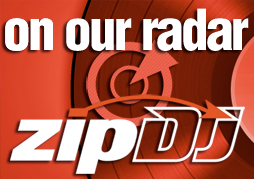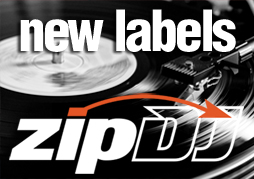11.30
11.24
 Lauren Flax – U Know EP – Nervous
Lauren Flax – U Know EP – Nervous
Gorgon City ft. Elderbrook – Smile (Magician Remixes) – Oracle Entertainment & Marketing
Trouble Makers – Mine Tonight – Armada Music
Noah Neiman – Make It So Good – Enhanced Music
Federico Scavo – Once Again – Indie
Ferreck Dawn – Mad Love – Spinnin Records
Vandalism vs Tommie Sunshine and Disco Fries – Forever – Vicious Recordings
Astrid S – Hurts So Good – Universal Republic
DJ Zinc – Turn The Bass Up / Jicarilla Jam – Indie
Dosem – Projection – Indie
Owen Paul – My Favourite Waste Of Time (30th Anniversary Remixes) – Sobel
Habib Galbi – A-Wa ft. Pitbull – Awesome/Universal
11.18
 Owen Paul – My Favourite Waste Of Time (30th Anniversary Remixes) – Sobel
Owen Paul – My Favourite Waste Of Time (30th Anniversary Remixes) – Sobel
Felix Cartal ft. Ofelia K – Drifting Away – Physical Presents
Satchmo – Fly – BIP
George Figares & DJ Blacklow ft. Brenda Reed – To Be Able To Love (Part 1) – Swishcraft
Anabel Englund – London Headache – Defected Records
Pusher ft. Mothica – Clear – Frontside
Lyxo ft. Maria Ranum – I’ll Catch The Teardrop – Lifted House
Olly Murs – Grow Up (Dance Remixes) – Epic Records
EDX – High On You – Spinnin’
Mopo – Things Can Only Get Better – Swishcraft
11.15
Here is a great article from the Passionate DJ Podcast, that we just had to share.
“How can I develop my DJ career while maintaining a demanding day job?” This is a familiar scenario to most people who work in music, or other creative endeavours. You have to pay your bills, but you want to express yourself creatively. But you can’t develop yourself as an artist (and turn it into a lucrative pursuit) without investing the time, and working on your craft.
Here’s some advice for the majority of DJs: those who spend their mornings and afternoons doing something else.
Block Out Your Time (And Stick To It)
It’s an unfortunate truth that creative pursuits, like music-related hobbies or potential careers, are the first things to be put by the wayside when you don’t feel like there is enough time in the day.
Not only do many DJs have day jobs, but they also have spouses/significant others, children, schooling, pets, other hobbies, chores, gym memberships… the list goes on. Ever have that feeling that there isn’t enough time in the day?
Of course you have.
The best way to handle this problem is to create a fairly rigid schedule. This is the single most helpful thing I’ve done to increase my own productivity, in all my pursuits.
You don’t necessarily have to get super specific, down to 15-minute increments. Get as specific as you need to in order to get things done. Start vague (i.e. – “Sunday afternoons: music discovery and track prep. Sunday evenings: date night”). If that isn’t quite getting the day job, break it down a step until it starts working for you. Maybe your real answer is something like “Sunday evenings after 5PM: date night.”
Don’t only schedule your DJ-related activities. This isn’t just to prevent forgetting things, like a to-do list… this is a lifestyle change.
Create a weekly calendar. Block out your absolute must-do, no-choice items first (like your day job). Then, see when your available “slots” are. Then, schedule time for your creative pursuits… and force yourself to stick to it. Try it for a week or two, then see what needs adjusting and pivot accordingly.
You may find that you “only” have two hours a week to work on music production. But here’s the kicker… that’s two more hours than the zero you’re finding time for now. It’s more time than you think.
When You’re At Work… Work.
The hustle has to be put on “pause” when someone else is paying you for your time.
This is not just an ethical concern, but a productivity concern as well. If you can’t shut off your crate-digging, self-promoting, gig-planning Super DJ persona, it becomes really difficult to get things done at work.
It’s really easy to go from unproductive to unemployed. And, if you were ready to get out of that job, you wouldn’t be reading this article!
Keep on delivering results if you want to get paid. That goes for DJing, too.
Cross The Streams
One appealing option for many people in this situation is to actually get a job in a related field.
This serves two purposes. Firstly, it can open two-way doors. For example, working as a stage hand or sound engineer for large-scale events gains you technical knowledge, and access to a whole new network of music industry people. That can’t ever be a bad thing for a DJ.
Second, it also serves to keep your head in the right place. It’s easier to get excited about your job when it’s in a field related to what you like doing anyway.
Finding a career path that is helpful to your musical career is pretty much a win-win situation.
A lead guitarist can give guitar lessons. A music producer can offer mastering services. A vocalist can direct a church choir. What can you do, armed with your knowledge as a DJ?
Prioritise Time Flexibility
It may be helpful to aim for a job which allows you to have a more elastic schedule, over one that pays a little bit better, if you have the luxury of doing so.
Realising that the job market is not always exactly stellar, many people have to fit their lifestyle around whatever job they are able to get. This is the unfortunate reality of having responsibilities.
However, one thing most people also do is to stop looking for jobs once they have one. I know… I had the same job for 13 years.
Luckily, mine was fairly time-flexible… though it also required me to be somewhat “on call”. I was a systems administrator, and if a network switch went down, the power went out, or some other disaster struck…. well, let’s just say that I spent more than one 3am session in the server room.
I would never tell you to find another job if you’re completely happy where you’re at, and you are on a successful career path. That being said, you never know what’s out there if you never look.
Finding a job where you’re allowed some leeway in your schedule does wonders for people who moonlight as DJs or musicians. A reasonable vacation schedule, for example, is very helpful if you’re at the point where you can tour or play the occasional out-of-town gig.
Sometimes, it isn’t even a question of flexibility so much as it is just a schedule that better fits your lifestyle. If you have a DJ residency that goes until 3 AM, and you have to be at work at 6 AM, something’s gotta give. It’s going to be up to you to choose which.
Start Your Own Business (or Freelance)
Maybe you’ve decided that the day job just isn’t for you, but you aren’t able to support yourself financially on your DJ gigs alone.
Going into business for yourself can be the most effective way to gain the time flexibility you desire.
Re-read that carefully: Going into business for yourself can be the most effective way to gain the time flexibility you desire.
Why do I point out those two words? Well, I highlight “can” because nothing is guaranteed. Not every business, freelance, or contracting arrangement is created equal.
“Flexibility” I highlight to make sure you don’t get the wrong idea. Gaining flexibility of time is not the same thing as gaining time!
This is often a high-risk, high reward kind of choice. This option is not for everyone.
If your sole purpose for starting a business is, “I want to DJ more”, you should probably throw away the idea right now. Starting a business isn’t too tough, but starting one that can consistently pay the bills is a journey all on its own.
You have to be prepared for a whole new lifestyle. And DJing will probably have to take a back seat for an undetermined amount of time.
All those disclaimers aside, I still feel it’s worth mentioning. In fact, this is the route that I’ve chosen, and what is working for me at the moment.
My wife and I have started a mildly successful online retail business, which serves to pay the bills and allow me to work when it fits in my schedule. This has given me the ability to have better say over what gigs I take, how well I promote myself, and to work on building up this website.
However, I’ve always had an entrepreneurial drive, and I was at a good place in my life to give it a try. This is something I would have done anyway. DJing is a good secondary or tertiary reason to start a business, but probably not a good only-reason.
That is, of course, unless you want to start an actual DJ business!
If you can scrape together the capital for a decent sound rig, have an excellent sense of professionalism, and think you have the business chops… putting together a mobile DJ business (for weddings, corporate events, etc.) can be a pretty lucrative option. It can also help you make steady money faster than you would building your career in the club/performance circuit.
Reduce Instead of Quitting
This is something else that Trip and I address in the episode. There is a bit of middle-ground between staying in a demanding time-vampire of a job, and jumping head-first into business ownership.
Perhaps taking a reduction in hours (i.e. – switching to part time from full time) is the option for you. Going from 40-50 hours in a work week to 20-30 is pretty significant.
It’s also a pretty significant reduction in pay… especially when you consider the fact that you will often lose other benefits by doing this (such as health insurance).
Still, it’s an option that exists for some people and is worth mentioning. This is a great choice for those DJs who are already making some amount of consistent money by DJing, more than the hobbyist.
Be Realistic
The unfortunate reality is that most people don’t ever end up dedicating as much of their time and energy to their passions as they wish they could, due to various circumstances and responsibilities.
If you shoot straight for the stars, and you’re not in a realistic place to do that yet, you will simply be overwhelmed and disappointed when you aren’t a superstar one year from now.
Baby steps – that’s the key. It may not be realistic for you to quit your job and start touring 3 months from now, but it’s a little more within reach to try to score a local residency or to find that extra 2 hours in the week to produce singles.
And please believe me when I say that baby steps add up!
Being realistic doesn’t mean disregarding your passion. If you’re like me, you’ve got something musical inside of you that needs to get out in order to maintain your sanity.
Take a proactive approach, and making small adjustments here and there, is a very productive method for getting more serious about your craft.
Source: Passionate DJ
11.11
 The city of Orlando has reached a deal to buy the Pulse nightclub for $2.25 million and plans to eventually transform the site of the deadliest mass shooting in U.S. history into a memorial.
The city of Orlando has reached a deal to buy the Pulse nightclub for $2.25 million and plans to eventually transform the site of the deadliest mass shooting in U.S. history into a memorial.
Orlando Mayor Buddy Dyer told the Orlando Sentinel on Monday that the city won’t rush to change the club, once a mainstay in the gay community that has become a gathering place for visiting and local mourners alike.
“There are lots of people that are making a visit to the site part of their trip, part of their experience of Orlando, so I think 12 to 18 months of leaving it as-is would be appropriate,” Dyer said.
In the meantime, the city plans to solicit ideas from the community for what form the lasting memorial should take. Dyer said the city hasn’t ruled out leaving part of the club intact permanently, such as the roadside sign featuring its now-iconic logo.
The city’s ultimate goal, he said, will be to “create something to honor the memory of the victims that are deceased [and] those that were injured, and a testament to the resilience of our community.”
The price negotiated by city staff is more than the $1.65 million appraised value of the nightclub, a 4,500-square-foot building occupying a third of an acre at South Orange Avenue and West Esther Street.
Dyer said the sale price was a compromise reached during negotiations with the club’s owners, whose attorney did not return a call seeking comment Monday.
The sales contract with the city was signed Friday by Rosario Poma, who owns the club with his wife, Barbara. Orlando’s City Council, which has the final say on the deal, will weigh in on it next week.
The nightclub has been empty since June 12, when a gunman opened fire during a Latin-themed dance party, killing 49 people and wounding dozens more.
Since the massacre, mourners have flowed steadily to the site to pay their respects, leaving behind photos, notes, stuffed animals and other remembrances. Many of the items have since been collected for preservation by the Orange County Regional History Center.
The visitors have at times been disruptive to nearby businesses and residents, creating parking troubles, crowding sidewalks and prompting safety concerns. The club was also the victim of at least one break-in about a month after the tragedy.
Dyer said purchasing the property will help with security and safety issues, as the city will no longer need to coordinate with a private owner to enter or change the property.
“Now, we can actually secure it like we would any other piece of city property,” he said.
In September, the city removed the black chain-link fence that had surrounded the club since soon after the shooting, replacing it with a new barrier farther back from the road, wrapped in a screen which features images created by local artists.
Those killed in the Pulse massacre have been commemorated in many ways, but the city has kept mum on the specifics of its plans for a permanent memorial. Dyer first floated the idea of buying the nightclub in a radio interview in August.
The club has already drawn onlookers from across the globe, as far flung as the prime minister of Luxembourg. Democratic presidential nominee Hillary Clinton laid flowers outside the club during a visit to Orlando in July.
Dyer said the city will seek memorial ideas from other communities, not unlike how local officials brought in Kenneth Feinberg, a national authority on victim compensation in mass tragedies, to administer the $29.5 million OneOrlando Fund for Pulse shooting victims.
“We’re still gathering information,” Dyer said. “We’re looking around the country for some people that have done something like this before. There are some folks with expertise related to this.”
Barbara Poma opened the bar in 2004, naming it Pulse in honor of her brother John, who died of AIDS in 1991. It was a local landmark in the gay community, often the first bar a gay or lesbian young person would visit in Orlando.
Poma was the first to pledge the Pulse site would become a memorial to those lost, in a statement issued through a spokeswoman days after the killings.
jeweiner@orlandosentinel.com or 407-420-5171
Source: Orlando Sentinel
11.10
 YAX.X, Delivio Reavon featuring Jennifer – Society (Remixes) – Freakin909
YAX.X, Delivio Reavon featuring Jennifer – Society (Remixes) – Freakin909
Axwell & Shapov – Belong (Remixes) – Axtone
Jess Glynne & Madison Mars – Take Me Home – Big Beat
Röyksopp Ft Susanne Sundfor – Never Ever – Oracle Entertainment & Marketing
Alx Veliz – U + Me (Eric Kupper Remix) – Pro Motion
Anne-Marie – Alarm (New Remixes) – Atlantic Records
Sia – Move Your Body (Alan Walker Remix) – RCA Records
Ultra Naté, Roland Clark – The First Time Free – Defected Records
11.08

zipDJ would like to welcome the following new label partners!
ADA, United States
Clubstream/Substream Music, Sweden
DM Recordings, United Kingdom
Mjuzieek Digital, Austria
Modem Music, Australia
Royal Party Records, Italy
Valminuta Records, Italy
Vilahangar, United Kingdom








